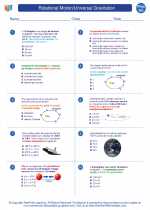Oceans
Oceans are large bodies of saltwater that cover about 71% of the Earth's surface. They play a crucial role in regulating the Earth's climate, providing food and resources, and supporting a diverse array of marine life.
Ocean Formation
Oceans were formed millions of years ago through processes such as volcanic activity, tectonic plate movements, and erosion. The water in the oceans comes from a combination of sources, including rainfall, runoff from rivers, and the melting of ice caps and glaciers.
Ocean Zones
Oceans are divided into several distinct zones, including the intertidal zone, neritic zone, oceanic zone, and abyssal zone. Each zone has its own unique characteristics and supports different forms of marine life.
Ocean Currents
Ocean currents are continuous movements of seawater driven by factors such as wind, temperature, and salinity. These currents play a crucial role in distributing heat around the Earth, affecting climate patterns, and influencing marine life distribution.
Ocean Resources
Oceans provide valuable resources such as fish, oil, natural gas, and minerals. They also serve as a source of renewable energy through technologies like wave and tidal power.
Human Impact
Human activities such as overfishing, pollution, and climate change have a significant impact on the health of the oceans. It is crucial to understand and mitigate these impacts to ensure the sustainability of ocean ecosystems.
Study Guide
- Describe the formation of oceans and the sources of water in the oceans.
- Explain the different ocean zones and the characteristics of each zone.
- Discuss the factors that drive ocean currents and their impact on climate.
- Identify and describe the valuable resources provided by the oceans.
- Examine the human impact on the oceans and potential solutions to mitigate these impacts.
[Oceans] Related Worksheets and Study Guides:
.◂Physics Worksheets and Study Guides High School. Rotational Motion/Universal Gravitation

 Worksheet/Answer key
Worksheet/Answer key
 Worksheet/Answer key
Worksheet/Answer key
